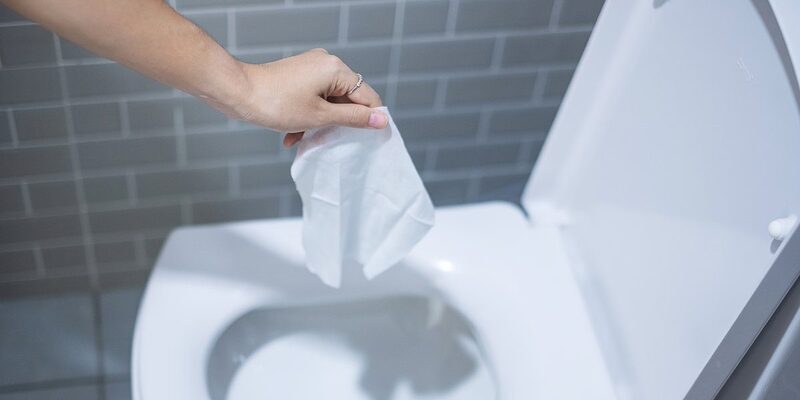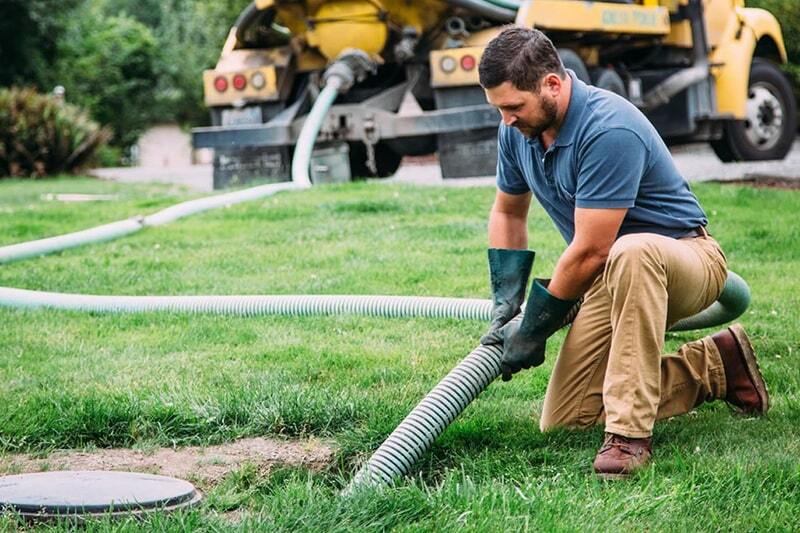Many people commonly throw used wet wipes down the toilet because of their convenience. Some wipes are labeled as “flushable”, making them safe and friendly to the drain and sewer systems. But, are wet wipes safe for septic systems? Learn more about what you can and cannot flush down the toilet and how to properly dispose of items that should not go into your septic tank in the article below.
See more: 10 best wet wipes with good price for baby & adult health
1. Are wet wipes safe for septic systems?
The answer to the question of are wet wipes safe for septic systems is no. Wet wipes are increasingly popular because they are very convenient. They are compact enough to carry in a purse or pocket, and their cleaning ability is excellent. Ordinary wet wipes have good surface cleaning ability, but specialized towels, such as alcohol wet tissue can also help remove bacteria and viruses, protecting the health of users. Wet wipes have many outstanding uses and benefits, but they should not be thrown down septic systems.
When toilet paper comes into contact with water, it immediately begins to disintegrate. This is because toilet paper is designed with a specific “weave” that makes it easily degradable in sewer systems and septic tanks. Wet wipes, however, are designed to remain moist and can clog pipes if flushed down the toilet.

Septic systems rely on bacteria to break down all of the materials that they receive through the drainpipe. Toilet paper is designed to mostly break down on its own, and healthy bacteria within a septic tank will feed off some of the organic material that toilet tissue is made with. However, wet wipes contain a mix of fibers, including cotton and rayon, as well as plastic resins. Bacteria cannot break down most un-organic materials; thus, wipes flushed down drains will remain in septic tanks.
Flushable wipes can cause issues for septic systems. When these wipes are used and flushed down the toilet, they will gather together and form a mass of waste that adds to the solid sludge layer at the bottom of your septic tank. This mass will not dissolve, so your tank will need to be pumped out more often to avoid major issues. The biggest recurring expense of maintaining a septic system is septic tank pumping; therefore, if you are continually adding to the solid waste within your septic tank, you will be spending much more expenses to have it pumped out.
Find out more: Is there plastic in wet wipes? Best alternatives of wet wipes
2. Do’s and Don’ts for septic systems
As discussed above, you should not flush wet paper down the septic system. Wet facial tissues are not biodegradable, so they will clump and clog your system. Besides not flushing tissues down the toilet, here are some do’s and don’ts for protecting your septic system (as private label wet wipes manufacturers says)
1 – Things to do for septic systems
- It is important to have your septic system pumped regularly. This will help you track the health of your septic system. If there is a problem, early detection and intervention can prevent more costly and extensive repairs.
- Water-conserving devices should be used wherever possible. Low-flow toilets and showerheads are widely available.
- Ensure that you have manually cleaned lint traps on your washing machine.
- Please remember to use only “septic safe” toilet paper in your home’s septic system. You can read the packaging to determine if the manufacturer claims that the product is septic system safe. If this information is not provided, you can research the composition of the paper and determine if it is safe for your septic system.

2 – Things not to do for septic systems
- Do not overload a septic system by using high volumes of water.
- Do not connect backwash from water treatment devices directly to an on-site septic system without consulting a professional.
- Do not allow heavy equipment to drive over the lines or cables.
- Do not use a garbage disposal. Chopped food particles will not break down in the septic tank and may cause clogs in the line.
- Do not dispose of anything other than human waste and toilet paper down the toilet.
- Do not let a large amount of fats, chemicals, or solvents enter the system.
- Do not wait for signs of failure to appear before checking your system.
See now: Are wet wipes biodegradable? Here’s what we found out 2023
Are wet wipes safe for septic systems? As mentioned before, wet wipes, even flushable wipes, biodeogradable wipes are not safe for septic systems. If you intend to use these wipes, keep in mind to throw them into the trash or garbage. In addition, we recommend that you should follow things of do’s and don’ts to protect your septic system. If you have any questions, please contact us for a free consultation.
Dong Hiep Trading and Investment Joint Stock Company:
- Representative office: 69B Thuy Khue, Thuy Khue Ward, Tay Ho District, Ha Noi City.
- Manufacturing site: Lot CN7, Tu Liem Industrial Cluster, Minh Khai Ward, Bac Tu Liem District, Ha Noi City.
- Hotline: (84-24) 3716 0270.
- Website: https://dhti.vn/en/
Related information:




